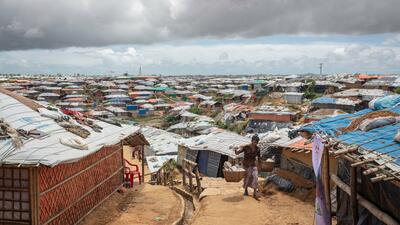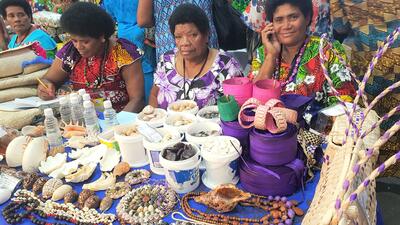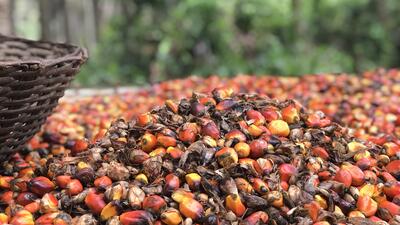
Moving beyond concessional lending for small island developing States
Trade Forum talked with Asian Development Bank Vice President Fatima Yasmin to learn more about the ways in which Development Banks in small island developing States (SIDS) can make a difference to the often-dire financing situation of these vulnerable economies and their small businesses.
A: In 2023, ADB improved its concessional lending terms for SIDS to accelerate investments and address urgent development financing needs, particularly for building resilience amid heightened and intensifying vulnerabilities.
Our concessional lending terms for SIDS are now aligned with emergency assistance loan terms. This will help incentivize preparatory actions for climate adaptation and disaster risk reduction, as their funding costs are now at par with the cost of post-disaster reconstruction.
Increased concessionality will also help reduce the future debt service obligations of SIDS, as the lingering impacts of the pandemic and subsequent global shocks have led to an eroding fiscal space and rising debt burdens.
In turn, freed up fiscal space can be channeled towards investments to bridge infrastructure gaps, strengthen social services, and scale up investments in climate adaptation and disaster risk reduction.

A: ADB’s finance sector work in the Pacific has a strong focus on reducing the finance gap in the small business sector. Here are some examples:
- Secured transaction frameworks have been legislated in ten countries* across the region and secured collateral registries put in place. Through these, small businesses can use moveable assets such as cars, machinery, and crops value as loan collateral.
- ADB has worked with financial institutions across the region to develop products within the agricultural supply chain. For example, lending products for ginger producers in Fiji through its Development Bank and vanilla growers in Papua New Guinea through MiBank.
*Cook Islands, Federated States of Micronesia, Fiji, Marshall Islands, Palau, Papua New Guinea, Samoa, Solomon Islands, Tonga, Vanuatu
- Development banks in the region are mandated to lend to the micro and small business sector. ADB assists development banks in developing new lending products, improving their credit assessment policies, and helping them align their services with the needs of women-owned and -led businesses.
- ADB is supporting Fiji with drafting legislation to allow alternate fundraising platforms that will provide simpler ways for small business to raise equity and debt.
- In six countries* in the Pacific, ADB is supporting business development services for small businesses to help them improve their business strategy and prepare bankable financial proposals to submit to financial institutions.
* Cook Islands, Fiji, Samoa, Solomon Islands, Tonga, Vanuatu

Trade has lifted hundreds of millions of people out of poverty. Yet ADB’s Trade Finance Gaps, Growth and Jobs survey published in September 2023, estimated a global trade finance gap of $2.5 trillion in 2022 (from $1.7 trillion in 2020), with small businesses and women-led businesses the most underserved.
The ADB’s Trade and Supply Chain Finance Program aims to maximize trade’s potential development impact through guarantees and loans, as well as knowledge products, services, and solutions. Its mandate is to make global trade and supply chains “Green, Inclusive, Resilient, Transparent and Socially Responsible”, working in the most challenging markets, including small island developing States.
In addition, our programme nurtures external partnerships to achieve its mandate, including to track carbon at each stage of a supply chain, to digitalize physical exports and imports, and to counter trade-based money laundering.
One of our initiatives looks at inclusion in trade through skills and capacity building of women-owned businesses. We do so in partnership with the International Trade Centre’s SheTrades Initiative. SheTrades offers various benefits to women in business, including access to markets, capacity building through its range of online trainings, networking opportunities that facilitate collaboration among women entrepreneurs, and advocacy for gender-inclusive trade policies.
Partnerships, such as ADB’s collaboration with ITC, are thus critical to our programme’s mandate to make trade more green, inclusive, resilient, transparent, and socially responsible.

















